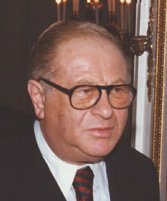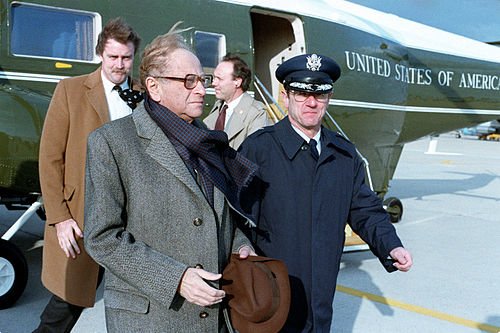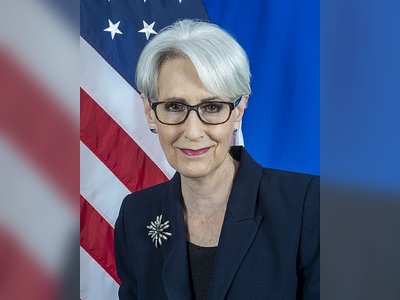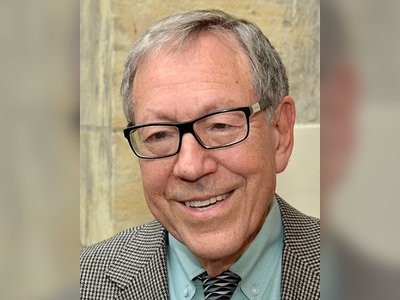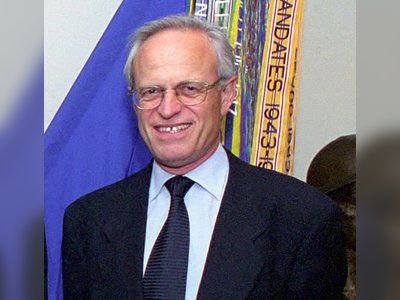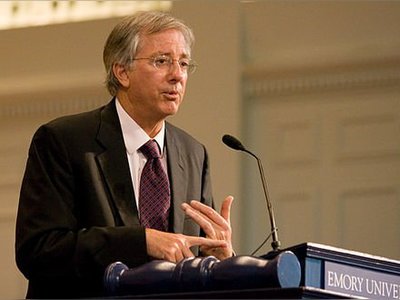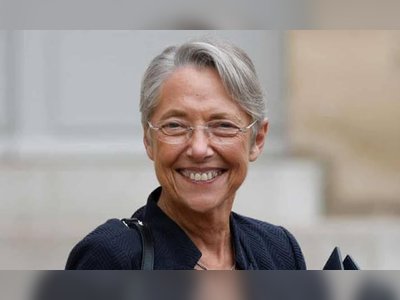Bruno Kreisky: The Long-serving Chancellor of Austria
Bruno Kreisky (January 22, 1911 - July 29, 1990) was a prominent figure in Austrian politics, serving as the Chancellor of Austria from 1970 to 1983. He was a Jewish-Austrian politician affiliated with the Social Democratic Party. Kreisky's tenure as Chancellor was one of the longest in Austrian history, leaving a significant mark on the nation's political landscape.
Early Life and Activism
Bruno Kreisky was born into a well-established Jewish family in Vienna. His father, Max Kreisky, hailed from a respected Moravian Jewish family and had prominent roles in textile companies and the Austrian National Bank. His mother, Irène (née Felix), came from a wealthy family known for their successful preserves business.
At the age of 15, Kreisky joined the youth movement of the Austrian Social Democratic Party. In 1927, he transitioned to the "Socialist Workers' Youth" (SAJ) movement. By 1930, he had risen to a position of responsibility in the organization, eventually overseeing cultural and educational activities. In 1931, he disassociated himself from the Jewish community.
In 1929, Kreisky met the diplomat Otto Bauer, who was also Jewish, and began studying law at the University of Vienna. However, in 1934, the fascist chancellor Engelbert Dollfuss came to power in Austria, and the Social Democratic Party was outlawed. Kreisky and fellow socialist Roman Felleis founded the underground movement "Revolutionary Socialist Youth" and held meetings in Czechoslovakia.
As a result of his activities, Kreisky was arrested in January 1935. During his arrest, he came into contact with both socialists and Nazis. In March 1936, he was put on trial as part of the "Socialist Trial" and was charged with betrayal. He was sentenced to one year in prison. He was released in June of the same year and expelled from the university.
In March 1938, Kreisky completed his studies and graduated in law just shortly after Austria's annexation by Nazi Germany (Anschluss). Soon after, he was arrested, and during his detention, he shared a cell with the Jewish general Emil Zommer. However, he was eventually released in August of the same year on the condition that he would leave Austria.
He went to Denmark without official permission but later received an emigration visa to Bolivia through influential contacts. The leader of the Swedish Socialist Youth Movement, Torsten Nilsson, arranged a visa for him to Sweden, where he stayed from September 1938 until the end of World War II. In 1939, his elder brother, Paul, emigrated to Israel, and Kreisky financially supported him as Paul was physically ill and emotionally unstable.
In Exile
In Sweden, Kreisky quickly adapted, partly due to his connections with socialist activists and his cousin, Herbert Felix, a successful industrialist with a preserves business in Sweden, who was married to a Swedish woman. Kreisky settled in Stockholm, worked as an economic advisor, and published articles in both local and foreign newspapers.
In the political arena, Kreisky worked to regain Austria's independence after the war and campaigned for the separation of the socialist movement from the communists. His parents also arrived in Sweden in February 1940.
In October 1945, he was appointed by the Swedish government to oversee relief shipments to Austria, including medicines, powdered milk, and food products. At times, he also arranged for equipment and supplies that were not available in Austria.
Members of his party regularly sent him requests for assistance. In May 1946, he returned to Vienna and attempted to reintegrate into political activities, but Austrian Socialists did not welcome him back warmly at the time. Additionally, the Socialist Party was concerned that the return of Jews to its ranks would strengthen the perception of it being a "Jewish party."
Karl Renner and Adolf Schärf persuaded Kreisky to return to Sweden for a while to reestablish Austria's representation there. Beginning in 1947, Kreisky served as the secretary of the Austrian representation and enjoyed support from the Austrian Foreign Ministry. Later, he became the secretary of the embassy. In late 1950, he was asked to return to Vienna after 12 years in exile.
Political Career
In April 1951, he returned to Austria with his family, and in June, at the initiative of Vice Chancellor Adolf Schärf, he became an advisor to the newly elected President and Mayor of Vienna, Theodor Körner. Körner was known for his informal style and sometimes lacked tact, but Kreisky greatly assisted him and established close ties with the leadership of the Social Democratic Party.
In April 1953, he was appointed Secretary of State under Foreign Minister Karl Gruber. Kreisky and Leopold Figl jointly negotiated the State Treaty (Österreichischer Staatsvertrag) between Austria and the Allied Powers (the United States, Britain, France, and the Soviet Union), which marked the end of the four-power occupation of Austria.
Julius Raab later joined them, and they signed the treaty in Moscow in April 1955. Following the signing of the agreement in May of that year and the withdrawal of the Allied Powers from Austria, Kreisky received widespread acclaim. He was elected to Parliament in 1956, and in 1959, he became the Foreign Minister. During his tenure, he played a crucial role in formulating European economic agreements that laid the groundwork for the European Union.
In 1967, after his party's defeat in the elections, he was appointed as the leader of the Social Democratic Party and led the party to victory in 1970, becoming the first Jewish Chancellor of Austria. He remained highly popular among the country's residents and won subsequent elections in 1971, 1975, and 1979. Simultaneously, he held significant positions in the international socialist movement and developed closer ties with the "Third World" countries.
In the April 1983 elections, the Austrian Social Democratic Party lost its absolute majority in parliament, and Kreisky, who was serving as Chancellor, declined to form a minority government. He was succeeded by his Minister of Education, Fred Sinowatz, who became the Chancellor of Austria.
After leaving office, Kreisky's health deteriorated, and he underwent a kidney transplant in 1984. He later lived on the island of Mallorca, Spain. Kreisky is regarded as one of Austria's most successful Chancellors and was named the honorary chairman of the Social Democratic Party. He passed away in Vienna in July 1990.
- ברונו קרייסקיhe.wikipedia.org
